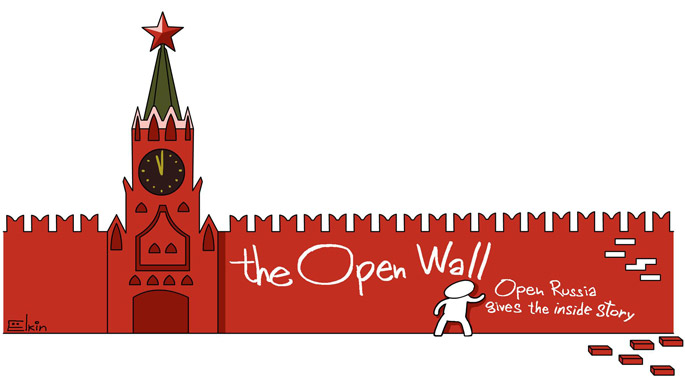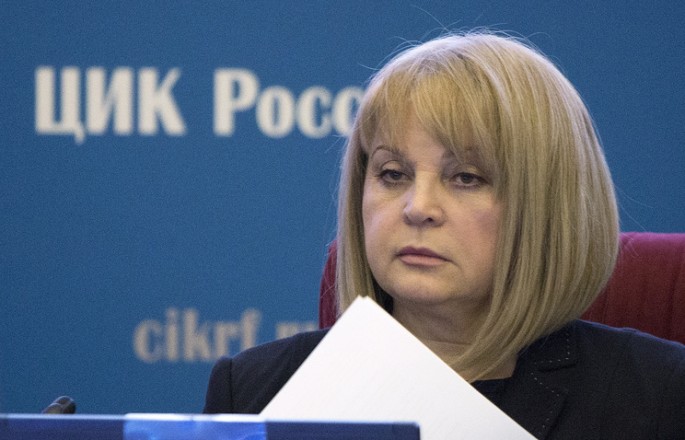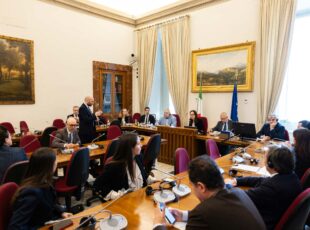Free and fair elections

Free and fair elections
The Kremlin loudly trumpets its wish to see free and fair elections this September, but it needs to come up with a public strategy, which ensures that the desired result keeps the courtiers in place while at the same time observing all the external proprieties.

Sergey Orlov
Elections to the State Duma will take place on September 18. Experts are talking of victory for only three parties – United Russia, CPRF (Communists) and the far-right party LDPR (Liberal Democrats). The parliamentary fate of the rest – including the democratic parties – is still very unclear.
The Kremlin has assigned a key role in the new free and fair electoral landscape to the Central Electoral Commission (CEC). In March, Ella Pamfilova, with the credentials to satisfy the urban liberals, was appointed head of the CEC. But she has had little time for root and branch change and has had to accept decisions not made by her.
In April 2016, for example, the CEC proposed that Vladimir Grachov be elected head of the Ryazan regional electoral commission. When the electoral observer organisations heard about this, they addressed a joint letter to Ella Pamfilova with details of the candidate’s previous “achievements.”
In the summer of 2012, as deputy chair of the regional commission, Mr Grachov was party to the falsification of elections in the town of Kasimov. The observers knew that he had “personally given orders for the illegal removal of members of the Territorial Electoral Commission (TEC) from polling station No. 17. He then took part in the illegal rewriting of the final protocol at the same polling station, falsifying the voting results and covering up a crime (ballot box stuffing). As a result, there were more voting papers in the boxes than citizens who had actually voted. Now this man has become the head of the Ryazan regional electoral commission.”
This open letter had no effect. In July, Pamfilova said that she was so far happy with the Ryazan executives: “There will be no repeat of what happened at previous elections. I assure you that the work of your Ryazan regional electoral commission will undergo a complete change because it is now closely monitored. If there is a whisper of doubt … you know we have already dismissed several chairmen of commissions for previous infringements and this process is ongoing.”
Political analyst Alexander Kynev refuses to believe in sudden changes of heart for people like Vladimir Grachov: “One can spend a long time talking to a fox, telling it how useful chickens are, but everyone knows what will happen if it is left alone with them. This is the same kind of story. How can one think that votes will be honestly counted in regions where the opposition has long since been crushed and independent media broken up, or where this is currently happening?”
In April, Pamfilova compelled head of the St Petersburg electoral commission Aleksey Puchnin to retire. Had Pamfilova got rid of the person who had done so much to reinforce St Petersburg’s reputation as the capital of vote rigging? The city portal City 812 [telephone code of St Petersburg] was of the opinion that Puchnin had fallen victim to infighting within the elites and that, with his dismissal, “most of the former TEC heads (and the TECs are a very important link in the Russian electoral system) had remained in post.” The new head of the St Petersburg electoral commission is Viktor Pankevich, old comrade of Valentina Matvienko, former governor of St Petersburg and now speaker of the Federation Council. Some observers think that the power behind the Pankevich throne will be Dmitry Krasnyansky, who oversaw all elections in the city between 2000 and 2012. It was under Krasnyansky that the city acquired its phantom polling stations (whose addresses were found to be wasteland, warehouses and, even, a church) whose voting records were almost 100% in support of Putin’s candidacy.
At the end of June another no less odious character was dismissed at the suggestion of the CEC. This was Irek Vildyanov, chair of the Moscow electoral commission. Although Pamfilova made a fairly serious accusation against Vildyanov – that the commissions under his control were too cosy with the local authorities – he will forever be associated with the April 2015 election in Balashikha (Moscow region) where an observer, who had tried to prevent the stuffing of ballot boxes, was beaten up by local youths right outside the polling station so badly that doctors had to remove his spleen. Mr Vildyanov’s reaction to this was characteristic: he stated that observers at the Balshikha election were “Nazis, well-trained with help from abroad, who were supporting our liberals.”
Can we believe that the CEC under Pamfilova will deliver on the promise of free and fair elections? Pamfilova’s predecessor turned a blind eye to voting shenanigans. But regional electoral commissions and, in part, municipal and regional governments, now find themselves under the control of a troublesome authority with somewhat vaguely defined powers. It would not be a good idea to antagonise this controller, and anyone who does has only himself to blame. In other words, the system has been complicated with elements of annoying checks and balances, but in essence nothing has changed.
Ella Pamfilova’s “new” CEC will not make Putin’s imperfect elections into anything acceptable – the falsification model will just be updated – and any sincere attempts on the part of Pamfilova to give the elections a veneer of fairness and transparency may very well simply have the opposite effect.



